-
How Summer Day Camp Helps Your Child with Developmental Skills
If your child is currently attending preschool or kindergarten, you may be interested in finding fun, rewarding after school programs, summer activities for kids, and summer day camps in Pembroke Pines . Summer camps for kids offer a wide variety of benefits, including helping children gain confidence and build important new skills. Here is a look at how a kids’ summer camp can foster child development skills.

Focusing on Teamwork
Many of the summer camp activities in which your child will participate will allow him to work as part of a team. Participating in summer activities for kids that focus on teamwork will help your child understand the importance of cooperation, and will further develop his skills in communication, listening, and collaboration. Strengthening these skills will carry over into every other area of his life, whether he wants to play team sports, join the debate team, or participate in other kindergarten or preschool activities.
Engaging in Physical Activity
The younger your child is when he begins regularly engaging in physical activity, the more likely he is to develop a life-long love of being active. Playing sports, or simply running around with other kids his age during summer camp activities, will help your child stay fit, healthy, and strong. Regular physical activity can also help stimulate and build child development skills like confidence, poise, and balance. Your child will also develop a sense of structure, learn how to handle success and disappointment, and understand the value of working hard to reach a goal.
Exploring Creativity and Expanding Social Interactions
Most summer programs for kids offer some summer camp activities that focus on the arts. These summer activities for kids allow your child to explore and expand his creativity and perhaps strengthen or develop a new artistic skill. While participating in summer camp activities, your child will also expand his social interactions. He will meet a diverse group of kids that may share some of his same interests, and he will learn how to engage and communicate with children of different backgrounds.
-
The Stages of Language Development
Did you know that early childhood education begins at birth? As soon as your child enters the world, he or she is soaking up knowledge from the world around him or her. You can begin preparing your child for preschool in Pembroke Pines even before his or her first birthday. The first stage of your child’s early education in language is the phonation stage. From one to two months, your child will develop vowel and throaty sounds.
Then, as the early education expert in this video explains, your child will enter the “goo” stage from two to three months. Here, you’ll hear the cooing sounds that are typical for babies. As your child grows, his or her babbling will gradually take on the rhythms of speech and gestures will be used to communicate. Most children say their first one or two words at around the time of the first birthday.
-
Helping Your Child Prepare for Summer Day Camp
Summer camp in Pembroke Pines is a great way to ensure that your child has access to enrichment opportunities , supervised playtime, and other fun summer activities for kids. If this will be your child’s first experience at summer camp, it’s important to understand that he or she may feel a little nervous. You can help your child embrace the summer camp experience by letting him or her know what to expect. Contact the summer camp staff to inquire about activities or field trips that may be planned for your child’s particular program. Then, discuss these activities with your child and emphasize how much fun he or she will have.
Day camps do not require the extensive packing that overnight camps do; however, your child may need to bring snacks and a few personal items. The evening before camp, you can guide your child in choosing an outfit and getting together personal items to take. When you drop off your child at the camp, remind him or her of the time that you’ll be back.

-
Developmental Milestones in Four-Year-Olds
Four is an exciting year for parents and children alike. Four-year-olds are eagerly embracing their newfound independence and they are actively developing the skills they will need in kindergarten and beyond. You’ll begin to see your child take on a more clearly defined personality as he or she progresses through pre-kindergarten . Consider talking to your child’s pre-k teacher in Pembroke Pines about ways of supporting your child’s healthy development at home.
Motor Skills
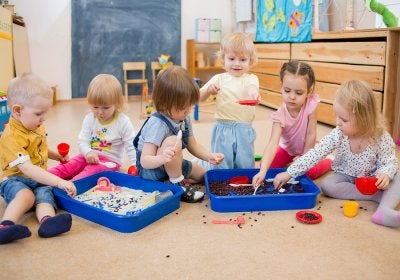 Pre-k kids are working on both gross and fine motor skills. In fact, parents are often amazed at the boundless energy of their four-year-olds. A four-year-old should generally be able to balance briefly on one foot, hop on one foot, and walk up the stairs without assistance. As pre-k kids progress toward their fifth birthdays, they begin to try new skills like somersaulting, climbing, swinging, and skipping. Fine motor skills become much more developed during this year. Your child should be able to print some letters, use cutlery, copy geometric patterns, and get dressed and undressed without assistance.
Pre-k kids are working on both gross and fine motor skills. In fact, parents are often amazed at the boundless energy of their four-year-olds. A four-year-old should generally be able to balance briefly on one foot, hop on one foot, and walk up the stairs without assistance. As pre-k kids progress toward their fifth birthdays, they begin to try new skills like somersaulting, climbing, swinging, and skipping. Fine motor skills become much more developed during this year. Your child should be able to print some letters, use cutlery, copy geometric patterns, and get dressed and undressed without assistance.Language Use
You might notice that your four-year-old eagerly looks forward to story time. He or she may even begin recalling parts of a story on his or her own. During this year, he or she should begin speaking sentences longer than five words, use the future tense, and clearly speak his or her name and address.
Cognitive Development
Pre-kindergarten programs guide children in learning the essential skills they’ll need later on, including pre-math skills. During this year, your child should be able to name at least four colors and he or she should have a general understanding of the passage of time. Your child should be able to count 10 or more objects.
Socio-Emotional Development
One major benefit of high-quality pre-k programs is the social skills that kids acquire. Your child will enjoy spending time with friends. He or she will adjust to the idea of cooperative and group play. Your child may be very interested in fantasy play, but in many cases he or she will know how to distinguish reality from fantasy.
-
Cultivating Empathy in Your Young Child
When your child is between the ages of three and four, he or she can enjoy preschool activities at a learning center in Pembroke Pines. Socializing with other preschool students will help your child develop empathy, but there are also steps you can take at home to cultivate empathy in your young child. Empathy is crucial for your child’s lifelong emotional stability and ability to work well with other people. The empathetic child is capable of distinguishing his or her feelings from those of others, understanding the perspective of others, and regulating his or her own emotional response.
Help your child identify his or her emotions.
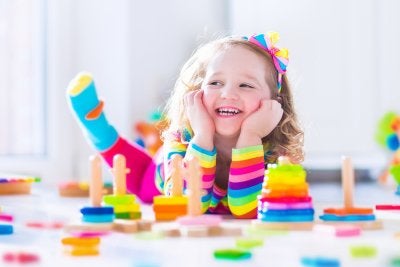 Preschool students are still working on learning how to identify their emotions and communicate their feelings. Sometimes, falling short in these areas can prompt a child to experience behavioral meltdowns. Label emotions whenever possible. For example, you could tell your child, “Thank you for the hug. That was so kind of you,” “I like how you shared your train with your baby sister. It’s made her so happy!” or “It must have made you sad to lose your teddy bear. Let’s see if we can find it together.”
Preschool students are still working on learning how to identify their emotions and communicate their feelings. Sometimes, falling short in these areas can prompt a child to experience behavioral meltdowns. Label emotions whenever possible. For example, you could tell your child, “Thank you for the hug. That was so kind of you,” “I like how you shared your train with your baby sister. It’s made her so happy!” or “It must have made you sad to lose your teddy bear. Let’s see if we can find it together.”Encourage the open sharing of feelings.
Young children need to know that their parents are actively listening to them and acknowledging their feelings. Make eye contact and listen carefully when your child speaks to you. Respond with joy when your child shares his or her happy feelings or with sadness when your child is upset. Share your own feelings with your child to help him or her understand that everyone has emotions and that part of life involves learning how to cope with them.
Assign responsibilities to your child at home.
Early childhood development research suggests that children who have small responsibilities at home generally become individuals who are caring and empathetic. Simple tasks like feeding the dog or helping you fold laundry will teach your child the value of helping others. Similarly, it will help your child to better appreciate when other people do nice things for him or her.
-
Highlighting Pre-Academic Skills Learned in Preschool
Giving your child the experience of preschool will help as he progresses to pre-kindergarten and into grade school. Various preschool activities can form the building blocks of early academic skills and child development in Pembroke Pines. Through these fun and engaging activities, your child will gain new experiences that will follow him throughout his academic career.
Preschool classes are typically filled with laughter and playtime. However, that same playtime is teaching children the basic foundational concepts associated with reading, writing, science, and math. A child might see his coloring page as a fun craft, but his preschool teacher knows that he is learning fine motor skills to help with future writing worksheets. The class may enjoy digging in the dirt to plant seeds, but their teacher knows that she is teaching them a simple concept of earth science. These are just a few examples of the various skills and life lessons your child will learn with a preschool curriculum. If you are curious to learn more, contact a preschool near you to schedule a campus visit.
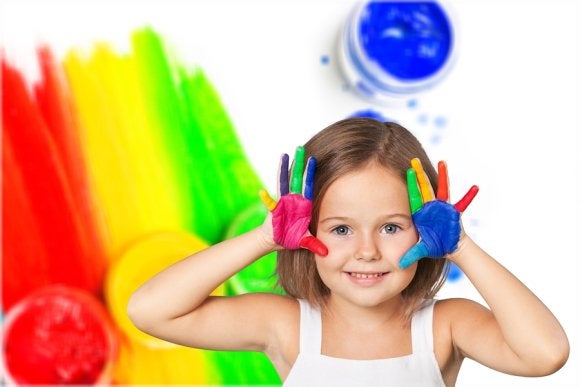
-
Helping Your Child Learn How to Grip a Pencil
As your child enters preschool near Pembroke Pines, he may struggle with the concept of gripping a pencil. This is normal, especially in early childhood education . Children are still developing their fine motor skills and learning how writing on paper will help their academic success.
Watch the short video for an easy way to help your child grip a pencil. You would hand your child a pencil, sharpened end toward him. Ask him to grip the pencil between his thumb and pointer finger. As he grips, slowly move the pencil to rest on the skin webbing between these two digits.
Be sure to watch your child as he does his preschool or kindergarten work. Notice if he grips the pencil too hard. If he has blisters on his hands or his knuckles are white while writing, ask him to loosen his grip. This will help encourage him to hold the pencil correctly.
-
What Do Children Learn in Pre-K Programs
Pre-kindergarten , also called pre-k, is an essential period of education and interaction in every child’s life. By attending a qualified pre-k program in Pembroke Pines, children can learn a variety of necessary skills and subjects that will positively influence their future education and social interactions. If you have ever been curious about what children learn in their pre-k programs, speak with a pre-k school near you and continue reading to learn more.
Love of Learning
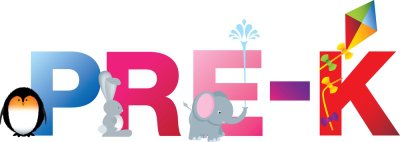 One of the most important learning skills children can learn with pre-k is a love of learning. Pre-kindergarten teachers are trained in making learning exciting. They can show children the adventure found when trying to discover something new. As children experience this excitement and thrill, they are learning skills to help with future reading, math, and history subjects. When children can associate learning with fun and excitement, they are more likely to enjoy learning as they continue through school.
One of the most important learning skills children can learn with pre-k is a love of learning. Pre-kindergarten teachers are trained in making learning exciting. They can show children the adventure found when trying to discover something new. As children experience this excitement and thrill, they are learning skills to help with future reading, math, and history subjects. When children can associate learning with fun and excitement, they are more likely to enjoy learning as they continue through school.Teamwork and Independence
Though the two terms, teamwork and independence, are contradictory, they are both important skills children learn in their pre-kindergarten class. Up until the pre-kindergarten age, usually 4 years old, many children may not have had much interaction with other children. Some children have only relied on their parents to do most chores for them. By attending pre-k, children can learn two valuable skills needed to get through life. They can learn how to play and work well with their peers. They can also learn how to clean up their messes or finish a project by themselves.
Early Subject Skills
Many parents enroll their children in a pre-k program because it gives the children a head start in learning necessary subject skills. Children will learn, in fun and engaging ways, about the early concepts of reading, math, and language. They are often exposed to earth science, art, music, and simple history. As children learn these pre-academic skills, they can enter kindergarten and grade school better equipped to learn harder concepts.
-
How Summer Day Camp Helps Kids Build Social Skills
Enrolling your kids into a summer camp in Pembroke Pines can do more for their development than simply getting them out of the house. Your kids will gain lifelong memories as they engage in various summer camp activities. They will also learn much-needed social skills that will follow them throughout their life.
They Are Surrounded by Age-Appropriate Peers
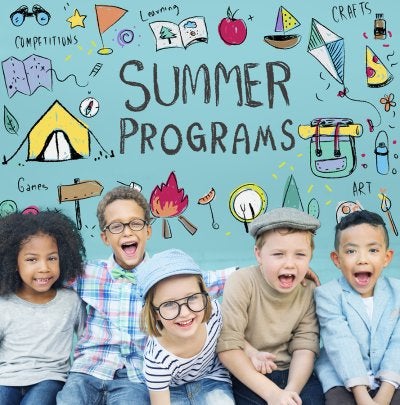 During the school year, your kids are surrounded by their peers, but the experience in summer camp is a little different. Kids are having fun and participating in various games with other children every day—an experience they may not regularly receive during the school year. Kids are also exposed to other children around the same age as them, though some might be older or younger. Often, summer camps group children by a grade or age range. Giving your kids exposure to children of different ages can help them learn more social and emotional skills.
During the school year, your kids are surrounded by their peers, but the experience in summer camp is a little different. Kids are having fun and participating in various games with other children every day—an experience they may not regularly receive during the school year. Kids are also exposed to other children around the same age as them, though some might be older or younger. Often, summer camps group children by a grade or age range. Giving your kids exposure to children of different ages can help them learn more social and emotional skills.They Engage in Group Activities
Part of the fun of a kids’ summer camp is being able to engage in activities and games with friends. By playing with old friends and new acquaintances, kids can better learn how to follow rules and interact with peers in an appropriate manner. They also learn how to be on a team and solve problems with each other. These lessons, and many more, all come from group activities that will influence your kids for the rest of their lives.
They Meet New People
Some kids may be inherently shy when meeting new people. Whether they are meeting new adults or kids their age, some kids may not know how to start up a conversation or ask for help from someone they do not know. Through various summer activities for kids, summer camp helps kids become more involved with others they may not know. This interaction can help alleviate some of the stress shy or introverted kids might feel when meeting new people.
-
Choose a Great Summer Camp for Your Child
Summer is just around the corner, which means that your child will soon have days free from his normal school schedule. If you don’t yet know what your child will be doing this summer, it’s not too late to look into summer camps in Pembroke Pines . Talk to your child to find out what sort of camp he might be interested in, and what he’d like to learn over the summer. A great summer camp will make learning fun through activities and educational field trips. Your child may want to attend a camp with his friends, but remind him that summer camp is a great place to meet new and interesting people, too. Check out this infographic to learn more about how to choose a great summer camp for your child this year.
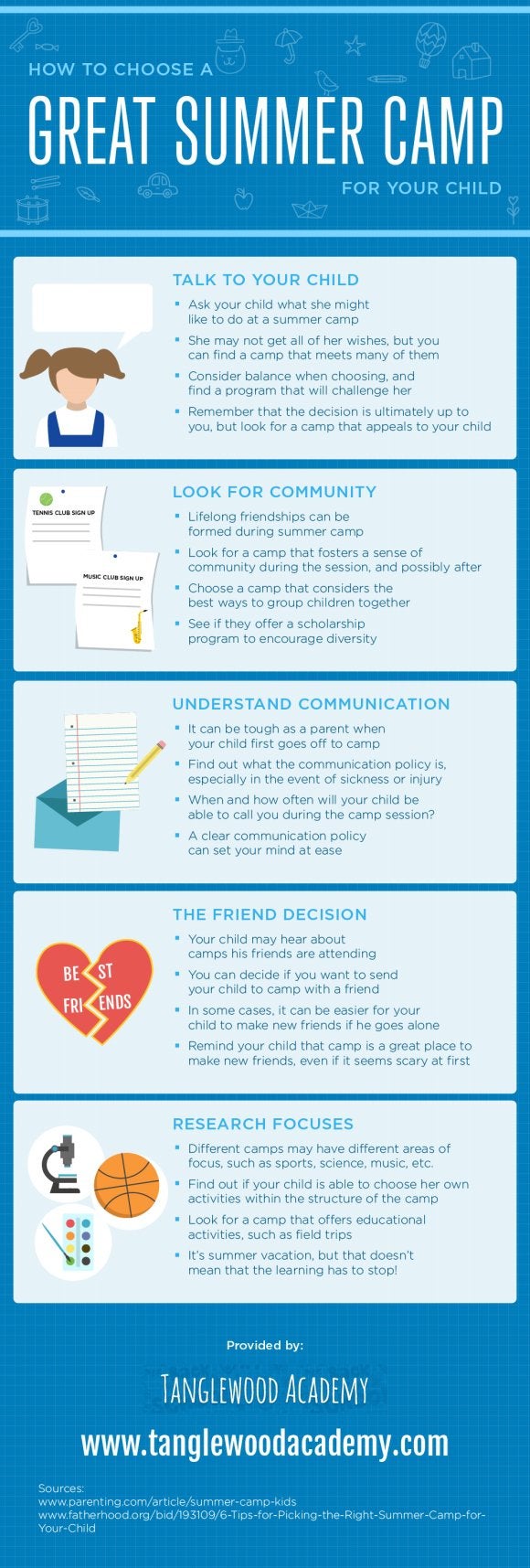
RECENT POSTS
categories
- Uncategorized
- Early Learning Center
- Pre-K
- Children
- Child Care Center
- Preschooler
- Preschool Blog Category | Tanglewood Academy
- Preschool Lunch
- Tanglewood Academy
- After-School Program
- Toddler School
- Early Childhood Education
- preschool activities
- pre-kindergarten
- childhood education
- pre-kindergarten programs
- Children’s education
- enrichment opportunities
- Kindergarten
- Nurturing Education Environment
- Toddler Care
- Child Separation Anxiety
- Toddlers
- Summer camp
- summer activities
- VPK
- Voluntary Pre-K
- Outdoor Activities
- Smart Strategies
- Tie Shoes
- Snacks
- Physical Activities
- Education
- Enrichment Activities for Kids
- Early Education Activities
- Preschool Curriculum
- Classroom Learning
- APPLE accreditation
- Language Comprehension
